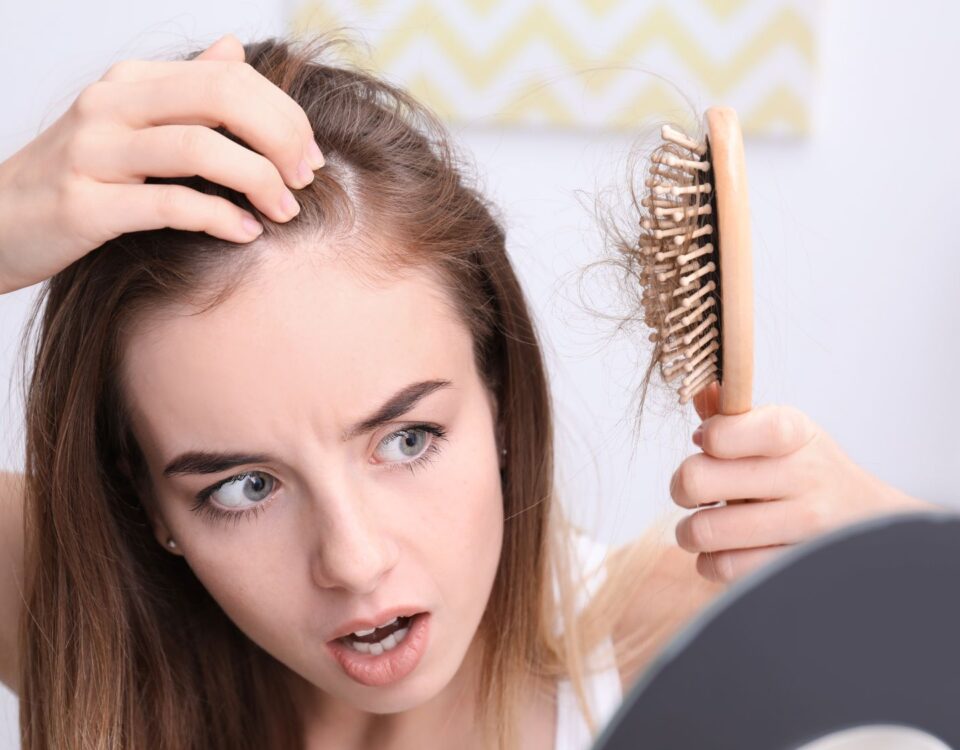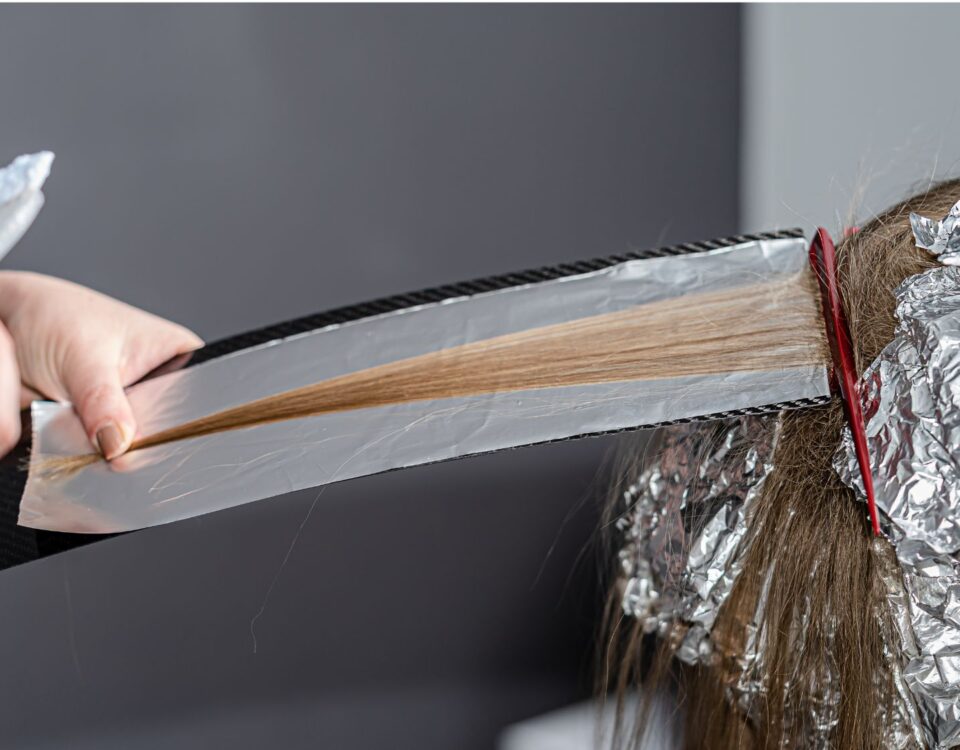
Understanding Hair Loss: Different Types and Their Causes
January 15, 2024
The Science Behind Hair Loss: A Review of Recent Research
January 15, 2024In this article, we look at the connection between stress and hair loss, backed by scientific studies and expert opinions. Let’s start by understanding the basics.
Hair loss is a common issue that affects millions of people worldwide, both men and women. Many factors contribute to hair loss, including genetics, hormonal imbalances, and ageing. However, one factor that is often overlooked is stress.
Understanding Hair Loss
Hair loss, also known as alopecia, occurs when the hair growth cycle is disrupted or when the hair follicle is destroyed and replaced with scar tissue. It can be temporary or permanent and can affect the scalp or the entire body. There are several types of hair loss, including male-pattern baldness, female-pattern baldness, alopecia areata, and telogen effluvium.
Stress and Hair Loss: The Connection
Scientific studies suggest a clear connection between stress and hair loss. Chronic stress pushes a large number of hair follicles into a resting phase. After a few months, affected hairs might fall out suddenly when simply combing or washing your hair.
Types of Stress-Induced Hair Loss
There are three types of hair loss that can be associated with high stress levels:
- Telogen effluvium: In this condition, significant stress pushes large numbers of hair follicles into a resting phase. Within a few months, affected hairs might fall out suddenly when simply combing or washing your hair.
- Trichotillomania: This is an irresistible urge to pull out hair from your scalp, eyebrows or other areas of your body. It’s considered an impulse control disorder.
- Alopecia areata: A variety of factors are thought to cause alopecia areata, possibly including severe stress. With alopecia areata, the body’s immune system attacks the hair follicles causing hair loss.
Case Studies and Statistics
A study published in the Journal of Investigative Dermatology established a connection between stress and hair loss. The study found that stress inhibits hair growth by affecting the stem cells that are responsible for producing hair follicles. Another study by the American Academy of Dermatology found that people experiencing a lot of stress can see noticeable hair loss. According to the study, stress can push hair follicles into a “resting” state, where they don’t produce new hair strands. Over time, hair can fall out more easily, even if you’re just washing, combing, or touching it.
How to Manage Stress for Healthier Hair
While it’s impossible to eliminate stress completely, it can be managed. Here are some ways to help reduce your stress levels:
- Regular exercise: Physical activity helps to lower your body’s stress hormones over time. It also helps improve your mood and can act as a natural antidepressant.
- Healthy diet: Eating a balanced diet can help keep your body healthier and can reduce stress. Certain foods can even help to reduce stress levels.
- Meditation and mindfulness: These relaxation techniques can help to quiet your mind and can reduce stress.
- Professional help: If stress is overwhelming, seeking help from a psychologist or psychiatrist can be beneficial.
In conclusion, while stress is a part of life, chronic stress can lead to several health problems, including hair loss. By learning how to manage your stress effectively, you can help reduce your chances of experiencing hair loss. Remember, if you’re struggling with hair loss, it’s important to speak to a healthcare professional who can provide guidance based on your individual needs.




